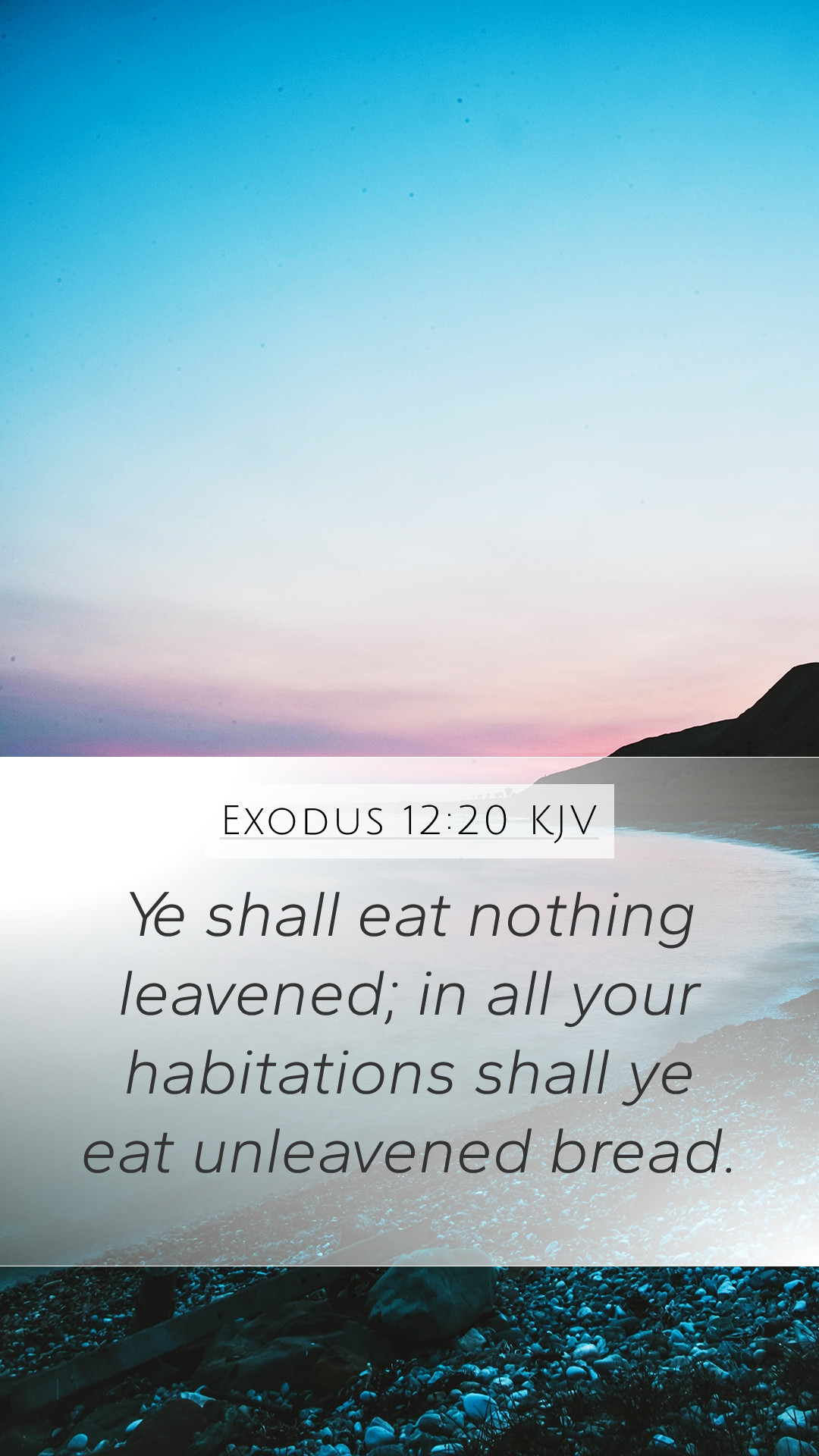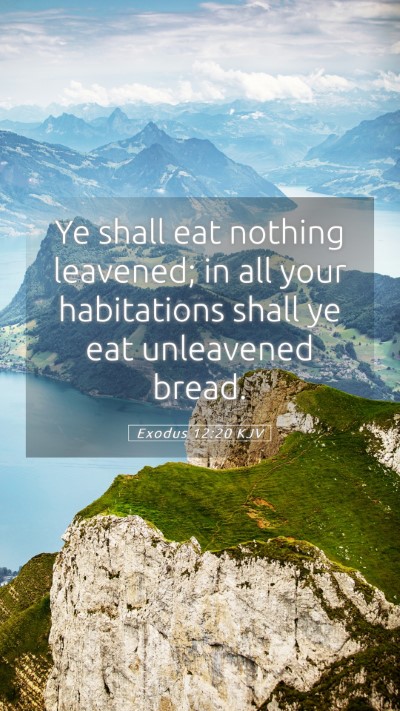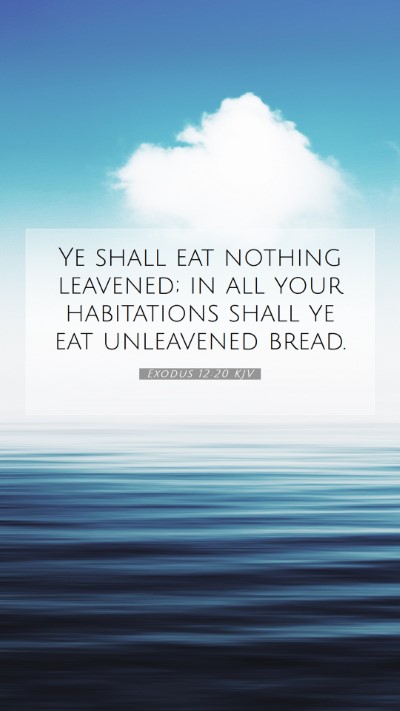Bible Verse Meaning of Exodus 12:20
Exodus 12:20 states: "You shall eat nothing leavened; in all your dwellings you shall eat unleavened bread." This verse encapsulates essential themes of purity, obedience, and divine instruction in the context of the Passover. Below is a comprehensive analysis derived from several public domain commentaries, providing a thorough understanding of this verse.
Overall Context of Exodus 12
The Book of Exodus chronicles the liberation of the Israelites from slavery in Egypt and the establishment of their identity as God's chosen people. In chapter 12, God instructs Moses regarding the Passover, a pivotal event marking Israel's deliverance from bondage.
Insights from Commentaries
Matthew Henry's Commentary
Matthew Henry emphasizes that the command to avoid leaven symbolizes the removal of sin. Leaven is often associated with corruption in the Bible. By eating only unleavened bread during the Passover, the Israelites are to reflect their commitment to purity and their transition from slavery to freedom.
Albert Barnes' Notes
Albert Barnes highlights that this directive is part of the broader instructions for the Passover. He notes that unleavened bread represents haste, as the Israelites were to leave Egypt quickly. It serves as a reminder of their deliverance and the urgency of obeying God's commands.
Adam Clarke's Commentary
Adam Clarke points out that the use of unleavened bread is not merely a dietary restriction but serves as a profound symbol of their liberation. The act of eating unleavened bread in their homes signifies a new beginning and the establishment of a covenant relationship with God. Additionally, Clarke mentions that the emphasis on "in all your dwellings" implies that this command is meant to be practiced collectively among the people, reinforcing their unity in faith and obedience.
Key Themes Explored
- Purity and Holiness: The avoidance of leaven represents a call to spiritual cleanliness.
- The Significance of Unleavened Bread: It symbolizes the new identity of the Israelites as God’s holy people.
- Obedience to Divine Commands: The act of following God's instructions is crucial for experiencing His deliverance.
- Collective Faith: The pronouncement of this command among all dwellings unifies the Israelites under God’s law.
Application of Exodus 12:20 in Daily Life
Understanding Scripture requires applying its meanings to our lives today. Exodus 12:20 teaches us valuable lessons about:
- The Importance of Spiritual Discernment: Just as the Israelites were to avoid leaven, we are encouraged to shun sin and corruption in our lives.
- Embracing Change: Reflecting on our past and recognizing the need for transformation to live in accordance with God’s will.
- Unity in Belief: Encouraging community practices of faith, similar to how the Israelites participated together in observing the Passover.
Cross References
Exodus 12:20 can be understood alongside the following verses which elucidate similar themes:
- 1 Corinthians 5:7-8: Paul uses the symbolism of leaven to instruct the church to live a pure life.
- Leviticus 23:6: Discusses the Feast of Unleavened Bread, reinforcing the practices initiated in Exodus.
- Matthew 16:6: Jesus warns against the "leaven" of the Pharisees, indicating spiritual corruption.
Conclusion
In conclusion, Exodus 12:20 serves as a foundational text for understanding the importance of holiness, obedience, and the significance of communal faith in the life of the believer. Through careful analysis and reflection on its meanings, we can apply its teachings in our daily walks with God. Engaging in Bible study groups or online Bible study can provide further insights and deeper understanding of such critical scriptures.


